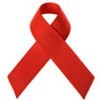By Lauren Tuck (Intern, POZ) VH1 hosted the Do Something Awards on July 19. DoSomething.org, a nonprofit organization, encourages teenagers and young adults to get involved and do something positive in their communities to help, volunteer for or promote a cause they believe in. Every year, since its inception in 1993, Do Something has awarded $10,000 grants to five of the most inspiring “do-gooders” who have launched their own nonprofits, with a grand prize winner taking home $100,000.
VH1 hosted the Do Something Awards on July 19. DoSomething.org, a nonprofit organization, encourages teenagers and young adults to get involved and do something positive in their communities to help, volunteer for or promote a cause they believe in. Every year, since its inception in 1993, Do Something has awarded $10,000 grants to five of the most inspiring “do-gooders” who have launched their own nonprofits, with a grand prize winner taking home $100,000.
During the past two years, the organization has grown exponentially by using social networking and through partnerships with MTV and celebrities. So it was not surprise that this year, the awards show broadcasted live from Hollywood and in addition to honoring the everyday young adult heroes, the evening also honored big-name actors, actresses, comedians, athletes and musicians for their respective work.
Humor (Jane Lynch, who hosted, never fails in making me laugh so hard I cry), compassion (the kick-ass award presented to Christina Applegate for kicking breast cancer’s ass), tears from tough guy Snoop Dogg, and musical performances by Travie McCoy (Staying Alive Foundation ambassador) and Natasha Bedingfield all led up to the anticipated announcement of the night, “And the $100,000 Award Goes to...”
I was pleasantly surprised by the amount of attention paid to HIV/AIDS throughout the show--it blew me away! Typically, shows directed toward my generation promote rampant unprotected sex--Gossip Girl’s Serena van der Woodsen, I’m wagging my finger at you! But comedian and D-lister Kathy Griffin, Olympic snowboarder Hannah Teter, football superstar Reggie Bush and a woman who needs no introduction (Lady Gaga) all received praise for their amazing work in the HIV field.
Out of 15 finalists, three focused on HIV as their causes, two made it to the final five to receive $10,000, and one, Jessica Posner, won!
Instead of taking the typical route of a Northeast private school college student, Posner decided to live in Africa’s largest slum. Kibera, outside of Nairobi, has an overwhelming population of 1.5 million people in an area the size of Central Park. While there, she learned that 66 percent of girls trade sex for food as early as age 6, that women contract HIV at a rate five times that of their male counterparts, and that Kibera has one of the world’s highest HIV rates.
At just 23 years old, Posner has an uncanny sense of determination to change the lives of these women and girls. Posner co-founded and directs Shining Hope for Communities, which started out as the Kibera School for Girls. But with the additional grant money, Posner’s dreams of finishing an additional community health center, staffed by a full-time nurse and part-time doctor, will come to fruition.
To learn more about Jessica and Shining Hope in Kibera, click here.
Wilfredo Perez Jr., 23, one of five Do Something finalists, drew his inspiration from the book Mountains Beyond Mountains: The Quest of Dr. Paul Farmer, a Man Who Would Cure the World by Tracy Kidder. After reading the Farmer’s biography, Perez decided to defer Brown Medical School and spend a year in Haiti. He began a public health and education program in Les Caye, Haiti, training orphans, ranging in ages 16 through 21, to become community health workers.
To learn more about Perez’s work, click here.
Emma Clippinger, 24, realized while interning for the Clinton Foundation in Rwanda that the country’s agricultural system did not support the nutritional needs of HIV-positive patients. She co-founded Gardens for Health, a program that attempts to combat the global food crisis by promoting locally produced and affordable food for people on antiretroviral medications that fight HIV.
To learn more about Gardens for Health and Emma Clippinger, click here.
Mainstream media have taken an important step by highlighting the good work done by a so-called lost generation, a group that older advocates have pegged as complacent and ignorant. By recognizing that young adults are in fact working hard--specifically by fighting HIV/AIDS--attitudes may begin to change and inspire millions of other kids to become active. In the process, it could also help educate many who remain in the dark about the dangers of HIV. It may have taken Twitter, Facebook, MySpace and YouTube to get us there but it’s a solid start.
Advertisement
Advertisement
Advertisement







1 Comment
1 Comment